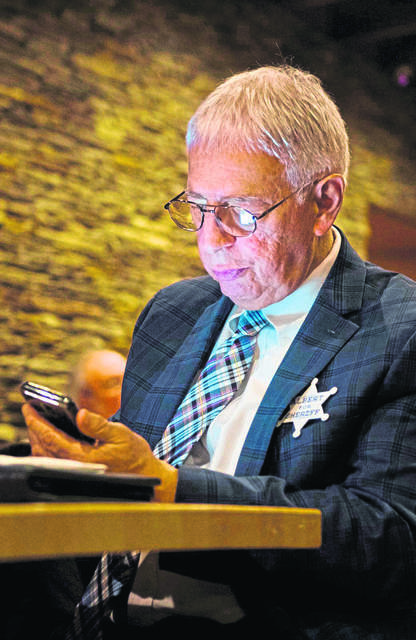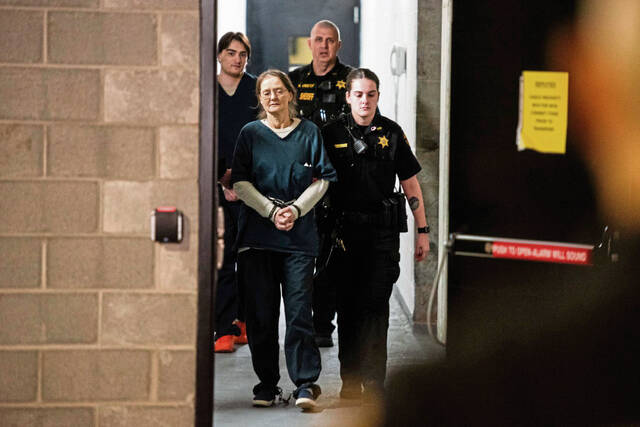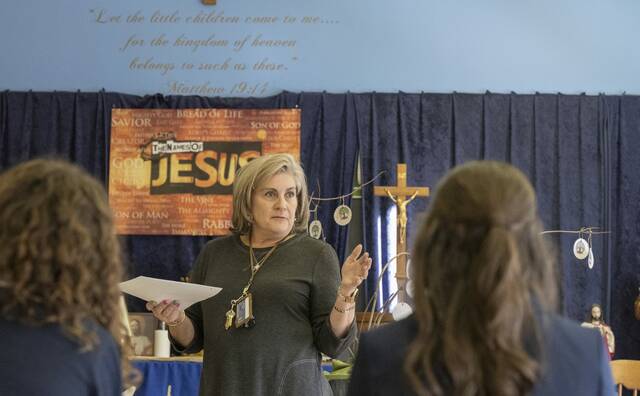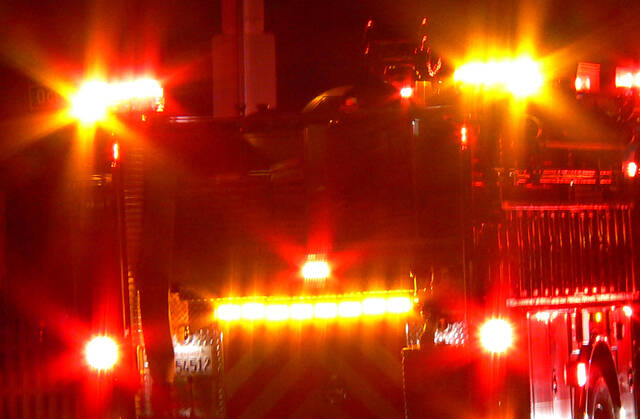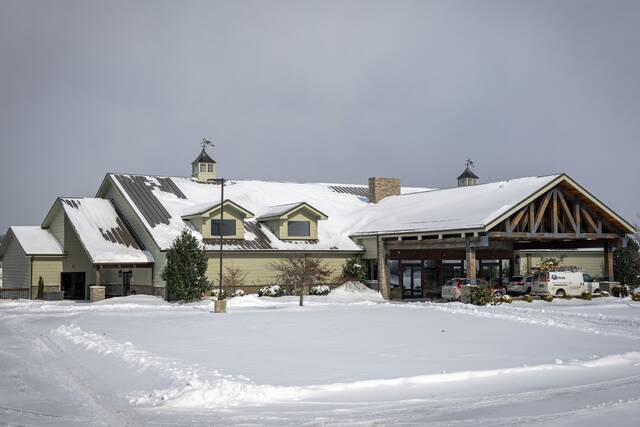Westmoreland County Sheriff James Albert on Tuesday said he will assign deputies to patrol near the county’s 307 polling locations on Election Day.
The first-term sheriff said he has received no specific information about threats but he wants deputies at the ready should disturbances or calls of voter intimidation arise Nov. 3.
“Hopefully, nothing will happen, but it’s better to be prepared than not prepared,” said Albert, a former police officer and longtime district judge who was elected sheriff last fall as a Democrat. In September, he changed his political party registration to Republican.
The sheriff said he will divert 15 to 20 deputies normally assigned to serve warrants to patrol regions of the county with a focus on voting precincts. Deputies are expected to drive around the polling locations and will remain in marked vehicles unless called on by election officials or local police to assist with any incidents.
A meeting with deputies will be held in the next week to inform them of their Election Day duties, Albert said.
“We were hearing that poll workers were concerned about trouble at the polls,” Albert said. “We’re there to assist, and I totally prefer any trouble and arrests be handled by local police. We will just be there as an added layer of protection.”
County officials said they are researching whether the sheriff’s plan is legal.
Commissioner Sean Kertes said the county is still formulating Election Day security procedures. The county will use constables to serve as on-site security, as is allowed by state law, he said.
“We’re telling people they should call 911 if there is trouble,” Kertes said.
The Pennsylvania Department of State, which oversees elections, referred to guidelines published online regarding Election Day precautions and how counties and voters should handle polling place security and voter intimidation complaints.
Those guidelines of the Election Code (Section 1207) stipulate that no on-duty police or military member is allowed within 100 feet of an entrance to a polling site unless summoned by elections officials or three voters, with specific concerns that require them to maintain the peace, clear a path into the precinct or quell a disturbance.
The state said people who witness potential voter intimidation should refer matters to their local elections department and district attorneys for investigation.
Protecting voters
While this year’s count will doubtless go on for several days — now that courts have ruled mail-in ballots postmarked by Election Day can be received by 5 p.m. Nov. 6 and still be counted — experts are optimistic that voters will have safe options and that all votes will be counted.
“Our ballots are our voice,” Pennsylvania Attorney General Josh Shapiro said. “And I trust they will all be counted in a timely way as the Department of State has said.”
The Election Protection Coalition — a partnership of nonpartisan groups including the ACLU of Pennsylvania, Common Cause, the Pennsylvania League of Women Voters, Pennsylvania Voice and the Lawyers Committee for Civil Rights Under the Law — will be on call before and during the election.
Pennsylvania ACLU spokesman Andy Hoover said voters can dial 1-866-OUR-VOTE with questions about polling locations and registration status, improper challenges at the polls, voter intimidation, polling places that are closed or that have long lines and issues with poll workers improperly asking for photo identification from voters.
“The purpose of the coalition is to educate voters and be available when voters have issues,” Hoover said. “If a voter has a question or a problem, we can be available to help. If they run into problems with a third party, we can intervene as well.”
While intimidation is subjective, state election law sets certain limits on who is permitted in and around polls.
And while those licensed to carry firearms don’t surrender that right on Election Day, the Department of State says local election officials have some discretion when there are questions.
“Individuals inside or outside the polling place who behave aggressively with a firearm or who ostentatiously demonstrate that they are carrying a firearm and that behavior either is intended to or has the effect of intimidating voters will be removed, reported to the appropriate authorities for investigation and prosecution,” Department of State guidance to local election officials states.
Prohibitions against firearms in locations such as schools and courthouses can be upheld when such institutions double as polling places.
Christopher Deluzio, policy director of the University of Pittsburgh Institute for Cyber Law, Policy and Security, is among the army of election law experts who are volunteering for the Election Protection Coalition.
President Trump’s call for an “Army for Trump” to deploy as election poll watchers across the country has raised concerns for some people, including Deluzio.
Volunteer to be a Trump Election Poll Watcher. Sign up today! #MakeAmericaGreatAgainhttps://t.co/3AnrRV7uSz
— Donald J. Trump (@realDonaldTrump) October 15, 2020
“There have been reports of groups wanting to travel all over the state and challenge voter eligibility. I think that is a recipe for voter suppression,” Deluzio said. “Exercising your right to vote is about as fundamental as it gets in our democracy. When you talk about speech or carrying weapons or gathering others to instill a sense of fear in those trying to vote, you’re crossing the line into intimidation, and that is where we have to be vigilant.”


